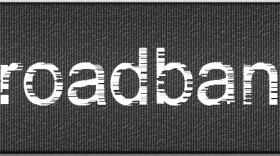New York has a new law that pertains to veterans who have received a “less than honorable” discharge. A state assemblymember from the Hudson Valley authored the bill that extends eligibility for state benefits to these veterans.
Governor Andrew Cuomo signed the Restoration of Honor Act on Veterans Day. Democratic Assemblymember Didi Barrett of the 106th district sponsored the bill, which she says is a first in the nation.
“It makes people who received bad papers because of bad military policies eligible to get their honor restored and their benefits under New York state law restored,” Barrett says.
The measure extends the eligibility for state benefits to veterans who have received a “less than honorable discharge” because of unfair or discriminatory discharge policies, which include for traumatic brain injury, post-traumatic stress disorder and military sexual trauma, as well as veterans who received a discharge for their sexual orientation or gender identity under “Don’t Ask, Don’t Tell.”
“We did have some inspiration from the state of Connecticut which had done some very limited reforms around mostly the mental health, the MS… military sexual trauma and the traumatic brain injury issues, but on a much smaller scale,” says Barrett. “And then Rhode Island on Veterans Day did the LGBTQ piece, and we had been working, obviously, because we passed all this legislation back in June, on the whole look and having this very holistic approach.”
Democrat Brad Hoylman of the 27th district sponsored the bill in the Senate. Jeff Rindler-Jordan is executive director of the Hudson Valley LGBTQ Community Center. He calls the legislation vital.
“So what it really says to the LGBTQ community is that ‘Don’t Ask, Don’t Tell’ was a failure and only stood in the way of the LGBTQ community being fully realized and acknowledged in the military,” says Rindler-Jordan. “And I think it’s a great way to right that wrong and allow veterans who serve this country just as strongly as their heterosexual and trans counterparts, that they get the rights and privileges that they deserve.”
Barrett says she was hearing about the issue before becoming chair of the Assembly Committee on Veterans' Affairs in January.
“We had been meeting, even before I became chair of Veterans’ Affairs, with constituents who are veterans talking about their frustration with this and the kind of awkward position that people have been put in,” says Barrett. “Obviously we’ve all been familiar with the kind of ridiculousness of having a policy like ‘Don’t Ask, Don’t Tell.’”
Again, Rindler-Jordan.
“My ex-boyfriend was in the military during ‘Don’t Ask, Don’t Tell’ and, even with this legislation, I have to say there is still some reluctance on his part to take advantage of that given the current national animosity towards our community,” Rindler-Jordan says.
Barrett hopes that such legislation is passed on the federal level.
“This legislation is 92 pages long because it required going through all of the laws of New York state to provide these veterans with the services that they earned,” Barrett says.
In addition to the Restoration of Honor Act, Barrett sponsored three other pieces of veterans legislation that were signed on Veterans Day. One codifies the Division of Veterans’ Services Discharge Upgrade Advisory Board, a program that helps veterans upgrade discharges given as a result of unfair or discriminatory practices. Another requires clear labeling of New York state jobs made available under a program that helps disabled veterans find employment with the state. A third allows municipalities to extend the current disabled veterans property tax exemption to disabled active duty military members.










